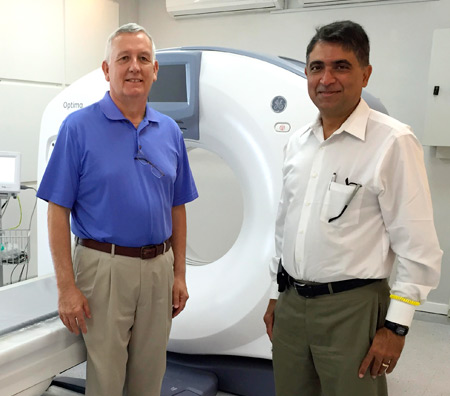Jun. 7, 2016
 We sometimes forget how fortunate we are to live where we do.
We sometimes forget how fortunate we are to live where we do.
Clean drinking water, developed roads, personal and public transportation, housing: For most of us, these basic necessities are just a part of our daily lives; however, people all over the world live without the basics that we often take for granted, such as access to medical imaging services.
Such is the case of Arusha, a town of approximately one million in northern Tanzania, where I recently worked as a Siemens ASRT Foundation Community Outreach Fellow with RAD-AID International. The people I encountered were extremely poor and did not have access to many of the basic services we expect.
Recently NSK Industries financed the building of a state-of-the-art radiology facility in Arusha with top-of-the-line equipment for mammography, computed tomography, magnetic resonance imaging, ultrasound, DEXA and radiography. With the completion of the facility, the next step was to educate local professionals on how to use this equipment to provide the best patient care possible and improve the procedures available to individuals.
That’s where I, along with the Foundation and RAD-AID, came in. Our team was there to help with improving the lives of these individuals by bridging the gap between their health care and ours. The project team was charged with assessing and improving the radiology services in the region by providing training and education to radiologists and radiologic technologists. We worked directly with individuals there to identify what additional training the staff needed and to develop a plan for ongoing training after we left.
I drew on my experience working in all types of hospitals including private, for-profit, children’s, union and urban hospitals in order to provide the best training assessment I could. Seeing the lack of processes at the facility really opened my eyes to the different levels of care being provided to people around the world.
I feel so fortunate to have been involved in this project. I have worked for over 40 years as an R.T. and this opportunity embodies the main reason I love this profession. I want to help people any way that I can. It brings me joy to help others, and that’s exactly what is at the heart of the work being done on these community outreach projects.
It’s great to see to see how committed the Foundation and RAD-AID are to providing ongoing training to facilities worldwide, like the one in Arusha, in order to provide the lifesaving procedures R.T.s perform. I want to thank the Foundation, RAD-AID and Siemens, who donated the funds to the Foundation for my fellowship, from the bottom of my heart — not just for the opportunity they gave me, but more important for what they are doing for so many people.
Foundation donors and their continued support are an essential part of this work. My favorite quote summarizes the role that donors play in this important work, because without them it wouldn’t be possible.
"The names of the patients whose lives we save can never be known. Our contribution will be what did not happen to them. And, though they are unknown, we will know that mothers and fathers are at graduations and weddings they would have missed, and that grandchildren will know grandparents they might never have known, and holidays will be taken, and work completed, and books read, and symphonies heard, and gardens tended that, without our work, would never have been."
— Donald M. Berwick, M.D., M.P.P., former president and CEO, Institute for Healthcare Improvement
I hope that donors will continue supporting the outreach efforts of the Foundation with their generous donations. I can state with absolute certainty that their donations are giving the gift of life to people around the world through these community outreach projects.